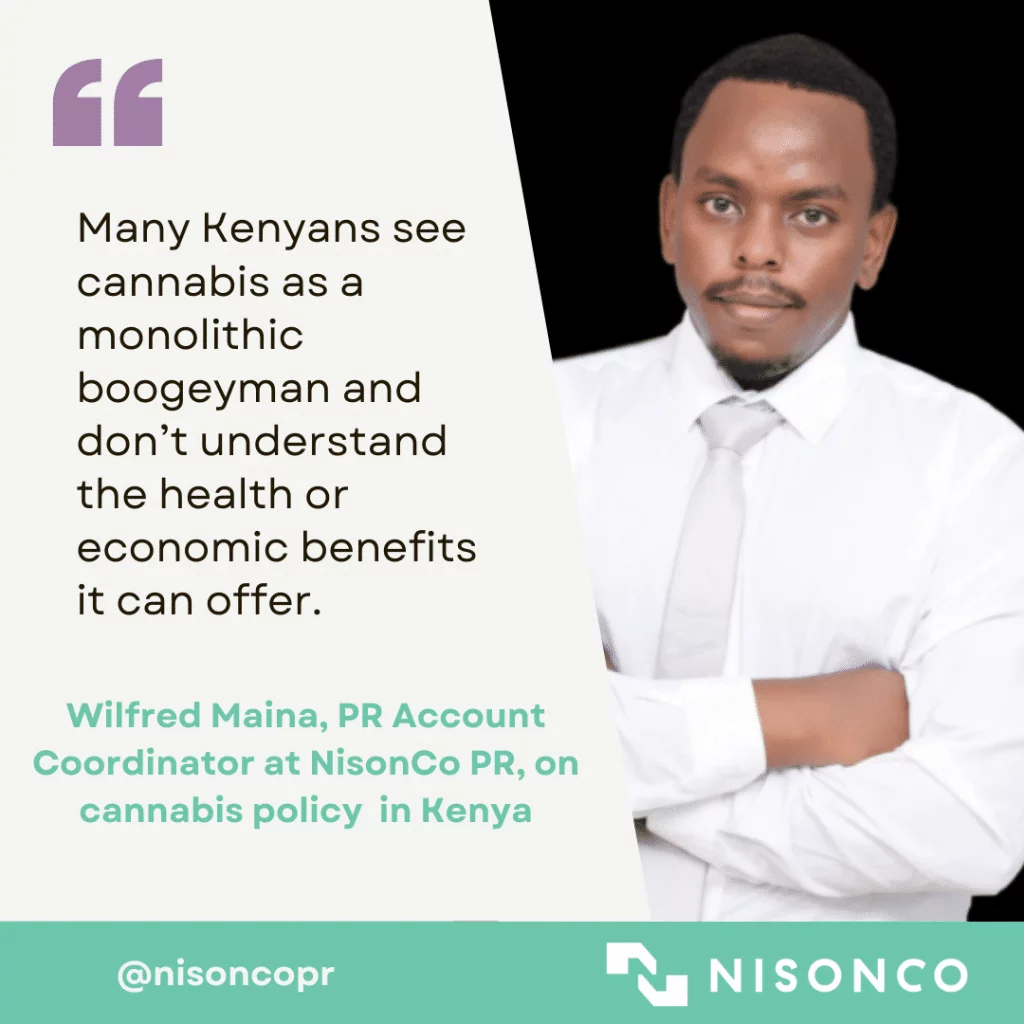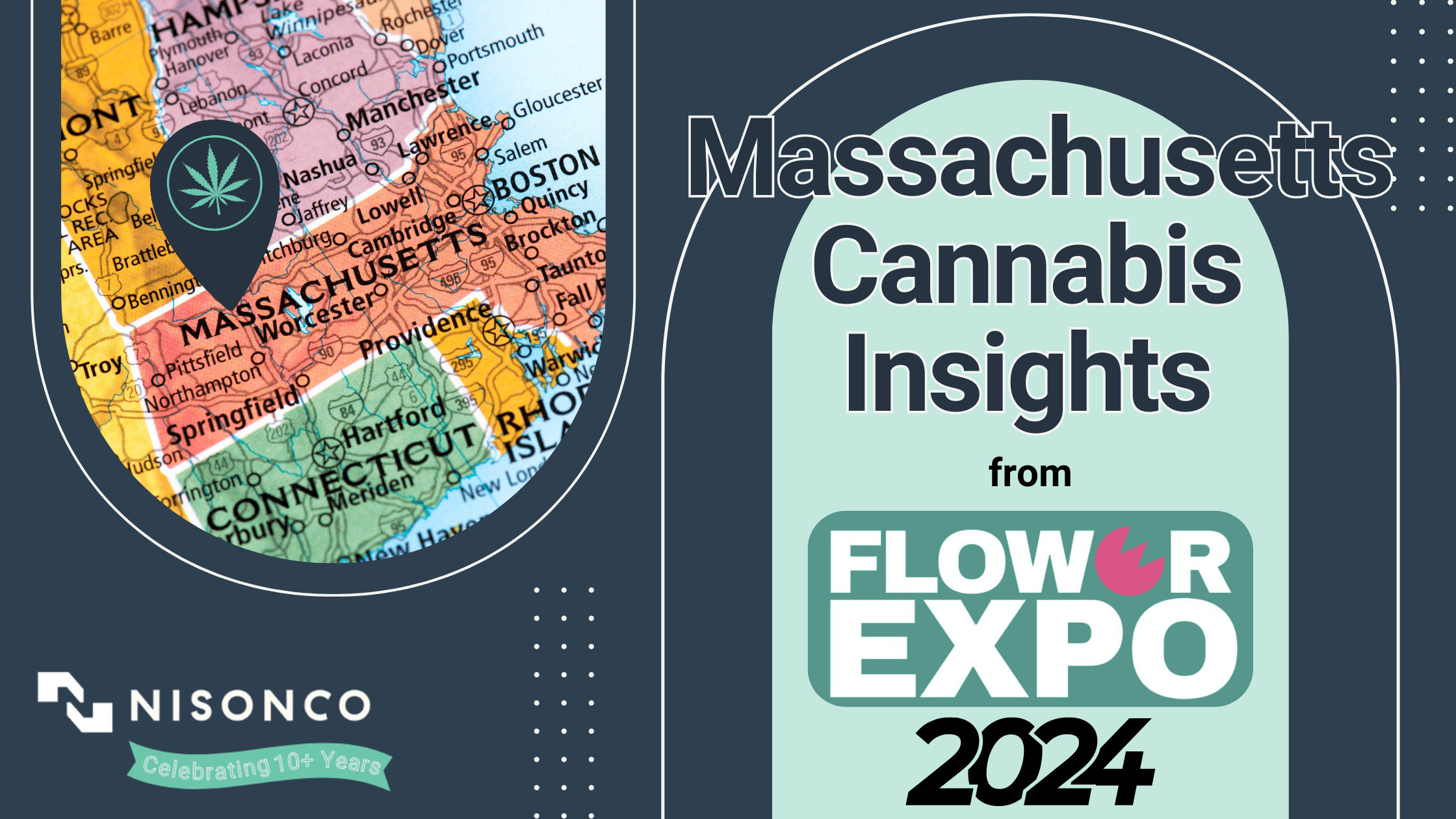Drug policy advocate Wilfred Maina plays an important role as an Account Coordinator on the cannabis and psychedelic PR team at NisonCo Marketing. He joined the team in April 2021, bringing his prior experience guiding educational and marketing initiatives for cannabis companies.
Wilfred advocates for changing attitudes on cannabis in his home country of Kenya when he isn’t working. In November 2021, he attended a harm reduction and drug policy conference in Nairobi. Wilfred spoke on a panel alongside other experts about cannabis decriminalization, recent research, and the political climate around cannabis in Kenya compared to other African countries.
As part of our ongoing Crafting a Cannabis Professional staff interview series at NisonCo PR, we interviewed Wilfred about his experience destigmatizing cannabis in business marketing, drug policy, and beyond. Continue reading below for our conversation.
Adryan Corcione: You recently spoke about cannabis at a harm reduction conference. What did you talk about?
Wilfred Maina: I was part of a panel reflecting on the progress of the decriminalization of marijuana, which was part of the Caucus on Harm Reduction and Drug Policy Reforms in Kenya’s agenda. I was tasked to answer the following question:
“According to the United Nations Office on Drugs and Crime, Africa is the largest producer of marijuana. As an expert on this subject matter, why is it that Africa has taken a back seat in the conversation on decriminalization of marijuana despite agriculture being the backbone of most African economies?”
In response, I spoke about the stigma around cannabis and why farmers, companies, and lobby groups are afraid of speaking up in support of cannabis. I also spoke about the importance of creating educational resources to educate the Kenyan people on cannabis. Many Kenyans see cannabis as a monolithic boogeyman and don’t understand the health or economic benefits it can offer.
A: Did you learn anything new at this conference? If so, what did you learn?
W: What really stood out to me was the religious use of cannabis in Kenya by the Rastafarian community. Ras Lojuron, a member of the Rastafarian Society of Kenya, was a great resource on this and he gave insight into a part of the marijuana conversation I hadn’t really thought about. In Kenya, religious organizations are usually the most vocal critics of cannabis, so it was surreal seeing a religious organization working alongside us.
The Rastafarian community has actually petitioned the Kenyan high court to decriminalize the use of cannabis, claiming that smoking marijuana is part of their religious practice. The case is still ongoing and we’re hoping for the best.
A: You mentioned a recent report, An Ethnographic Exploration of Knowledge Attitudes and Practices on Cannabis Sativa and Their Implications on Drug Policy in Kenya. What’s covered in this report and why is it so important?
W: This report focused on two Kenyan communities: the Luhya and the Luo [peoples], their knowledge and attitudes on cannabis, traditional use, and how they regulated cannabis use. Additionally, it looked at lessons we can learn from traditional use in these communities and how we can apply it to create a regulatory framework for cannabis use in contemporary societies. The report is important because it highlights a part of the conversation that’s rarely talked about: cannabis use in Kenya is not a recent phenomenon. It has been going on for a long time and it’s time for us to embrace it.
A: What’s the current attitude toward cannabis in Kenya? Is the climate more progressive or conservative compared to other countries in Africa?
W: Attitudes are very split along a clear generational gap. Most millennials and younger generations are pro-cannabis legalization, while most older generations are anti-cannabis. A lot of their hatred comes from our education system, which is very anti-cannabis. When compared with other African countries, we have a more progressive attitude towards cannabis.
A: Moving forward, how would you like to see the climate around cannabis change in Kenya in the future? What are your hopes for national drug policy?
W: I would like to see more people learn about the benefits of cannabis and embrace it. On the drug policy side, I hope cannabis is legalized, and we stop our version of the War on Drugs.
This interview has been lightly edited for clarity and slightly condensed for length.
Looking for help from our experienced psychedelics, cannabis, CBD and crypto/blockchain PR, SEO and marketing team? Let us know if you need help researching trends and topics, crafting communications, or securing news spots by contacting NisonCo here.



